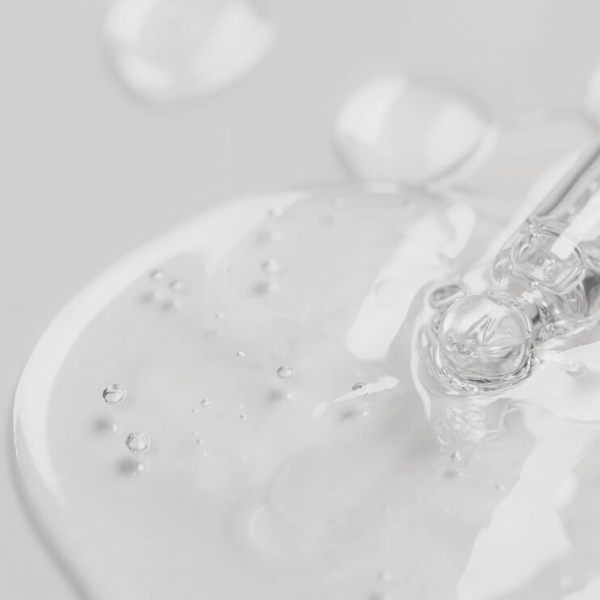What is glycerin?
Glycerin, also known as glycerol, is an odorless and colorless, thick sugar alcohol with a sweet taste. Glycerin is found in all natural fats. As the body's own substance, glycerin is a component of the skin's own moisturizing system NMF (Natural Moisturizing Factor).
Can glycerin be harmful to the skin?
It is always discussed whether glycerin can also be harmful to the skin. In fact, glycerin can have a drying effect at very high concentrations. However, warnings in this regard only refer to a glycerin content of more than 30%. This is not the case when the concentration is low. By the way, the extremely gentle formulations of myrto natural cosmetics have a maximum glycerin content of 3%, which studies have shown in combination with other hydrating and water-binding substances such as aloe vera or hyaluronic acid The skin's own moisturizing system NMF optimally complements and counteracts dry skin.
Can glycerin help with dry skin?
The effect of vegetable glycerin as a skin-friendly moisturizer in creams or lotions has been proven in numerous studies. At the same time, glycerin stabilizes the protective barrier layer, which helps keep your skin soft and supple. An intact skin barrier not only ensures good moisture retention, but it also prevents pollutants from outside from penetrating your skin. Glycerin penetrates deep into the stratum corneum, retains moisture there and improves the elasticity of the skin.
Is glycerin recommended for neurodermatitis?
Neurodermatitis or atopic dermatitis manifests itself as a chronic, non-contagious skin disease that progresses in episodes. Atopic skin is affected by dryness with thickened areas of skin, redness, itching and pustules. The moisturizing effect of glycerin helps to make the irritated, cracked skin of neurodermatitis more supple, stabilize the skin barrier and relieve the symptoms.
Is glycerin recommended for rosacea?
Rosacea as a chronic skin disease is characterized by persistent redness, inflammation such as pustules and papules and visible blood vessels in the facial area. The often dry and extremely sensitive skin affected by rosacea usually tolerates glycerin very well. Adequate moisturization with glycerin can reduce irritation of irritated skin. With rosacea, it is generally important to choose gentle formulations that do not contain allergens or irritating additives such as alcohol, fragrances, parabens or emulsifiers.
Is glycerin recommended for psoriasis?
Psoriasis is a chronic skin disease in which skin cells grow faster than normal, resulting in a buildup of skin cells in the form of scales and plaques. The skin may be dry, cracked, irritated and inflamed. When choosing skin care products, including those containing glycerin, it is important to consider the individual needs of the skin when it comes to psoriasis. Products containing glycerin can help soften skin and reduce flakiness. People with psoriasis should pay particular attention to gentle, hypoallergenic products.
Can glycerin cause pimples or acne?
Glycerin is non-comedogenic. This means it doesn't clog the pores.
What advantages does glycerin offer in hair and scalp care?
Glycerin is a very good moisturizer for the scalp. It is used in all myrto organic shampoos, scalp serums, hair treatments and conditioners. The active ingredient glycerin helps prevent dry dandruff, frizz and split ends. Glycerin also reduces the irritating effects of surfactants or foaming agents in shampoos.
How can glycerin best be integrated into your skin care routine?
Glycerin is contained in many myrto skin care products such as moisturizers, serums or face masks. It is most effective to use the products on clean, damp skin to lock in moisture. Important: When incorporating new products into your skin care routine, start with just one product and then add more. ck by piece more products. This way you can see whether and which product you may be reacting to. We recommend that you always test new products on a small area of skin first, for example in the crook of your arm.
Why is vegetable glycerin better than synthetic glycerin?
From a purely chemical perspective, both forms are identical. Synthetic glycerin, used in conventional cosmetics, is an industrial byproduct of petroleum or natural gas. It is produced petrochemically from propene by dehydration. Synthetic glycerin is environmentally harmful to produce.
The damaging effects of petroleum-based ingredients are discussed again and again. They often contain potentially carcinogenic substances, especially aromatic hydrocarbons (MOAH), which accumulate in the body. Petroleum-based ingredients should therefore never be contained in cosmetics.
The glycerin used in myrto products is 100% vegetable and palm oil-free. This plant-derived glycerin is sustainably produced from organic rapeseed or sunflower oil through saponification and is easily biodegradable. In order to obtain the highest possible purity, the vegetable glycerin is distilled, filtered and purified.

